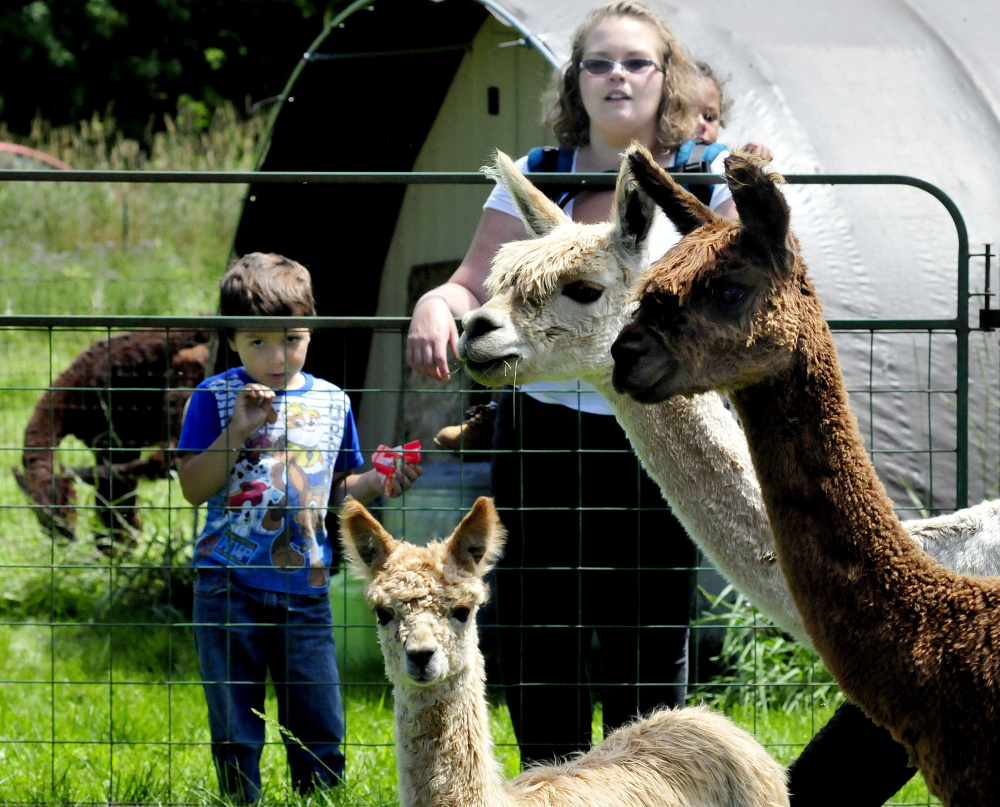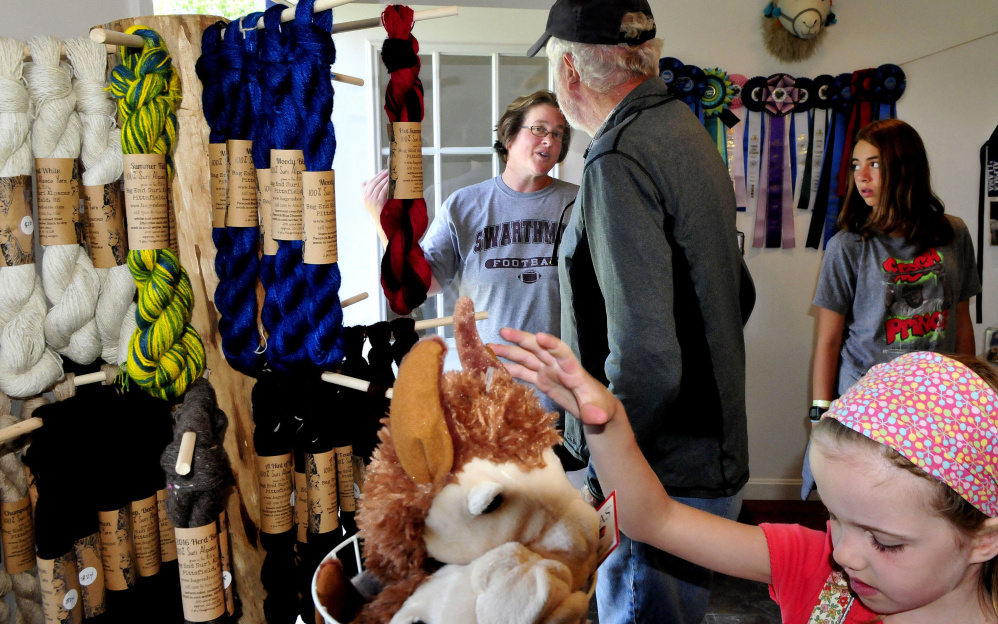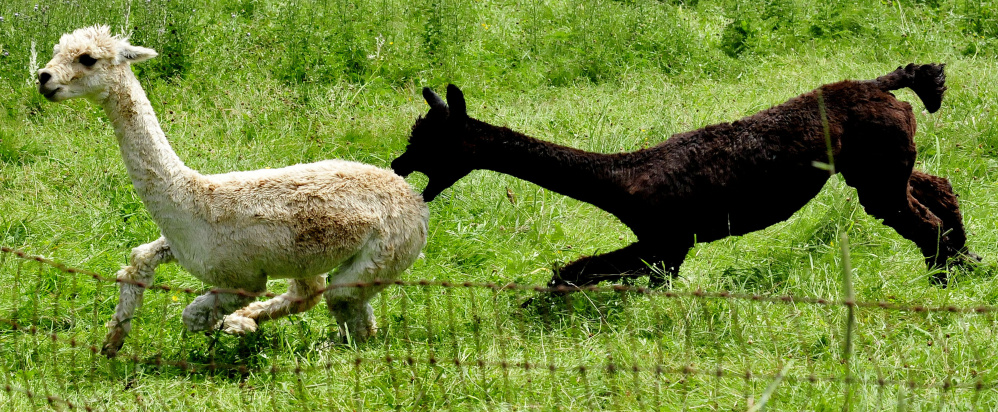PITTSFIELD — Lisa White spent her Sunday getting her animal fix. A recent transplant from Tennessee, White, 49, found herself missing her own livestock.
So she packed up her daughter, Zoe, 7, and a friend and drove to the Bag End Suri Alpacas farm in Pittsfield for Open Farm Day, a statewide annual event where farms across all of Maine’s 16 counties open their doors to visitors curious about the day-to-day realities of running a farm.
There White and her two young companions cooed at alpacas, scratched friendly goats, cuddled with attention-hungry donkeys and brushed a massive 600-pound pig named Bub.
“It’s great.” White said, as she scratched the big pig’s nose. “I miss my animals so badly.”
In addition to their prize-winning Suri alpacas, Bag End features wild-range guinea fowl, a preening male turkey and his two female companions, chickens and chicks, goats, donkeys and of course Bub, which means pig in Orcish.
Outside of the alpacas, many of the animals at Bag End have become beloved pets, said owner Jill McElderry-Maxwell, though some are still slaughtered for meat.
Like the farm itself, most of the animals get their names from J.R.R. Tolkein’s fantasy epic “The Lord of the Rings,” which has made for some interesting experiences while traveling, said Colby professor and Bag End co-owner, Bruce Maxwell,
“The funniest is when we’re at alpaca shows and the announcer tries to read a name and it’s in Elvish,” Maxwell laughed.
McElderry-Maxwell’s first introduction to alpacas came as complete happenstance. She was working at a friend’s feed store in Pennsylvania after quitting a high pressure job as a technical writer when she received an invite to help out on an alpaca farm. A cat lover, she liked that they were independent-minded and majestic.
“There is nothing more beautiful than one of these guys running across a field in full fleece,” McElderry-Maxwell said. “They’re just fun animals.”
A little over a decade after her first encounter, McElderry-Maxwell is tending to her own herd of more than 40 Suri alpacas, selling the animal’s soft, shiny fleece for fiber used in scarves, hats, socks, gloves and draping fabrics. Last year, McElderry-Maxwell gifted woven mats from some of the fiber to her local vets as seat warmers for cold winter visits.
In a little farm store McElderry-Maxwell started last fall, she sells vividly colored yarns made from alpaca fleece.
There are two types of alpacas, Suris and Huacayas, that produce different types of fibers. Almost all of McElderry-Maxwell’s herd is made up of Suris, which grow dreadlocks of soft, lustrous fleece that can be used in a similar fashion to silk. Huacayas fleece, by contrast, is kinkier and better used in sweaters.
Much of the quality of an alpaca’s coat is determined by the animal’s genetics. Suri alpaca fleece is judged by its luster, or shine, its fineness and its uniformity.
The animals also produce manure that can be used for compost. The farm sells aged manure and lets gardeners have fresher manure for free.
Pointing to a garden of hearty tomato plants, Bruce Maxwell said, “You can’t get better than alpaca poop for your tomatoes,” Maxwell said.
Kate McCormick can be contacted at 861-9218 or at:
kmccormick@centralmaine.com
Twitter:@KateRMcCormick
Send questions/comments to the editors.






Comments are no longer available on this story